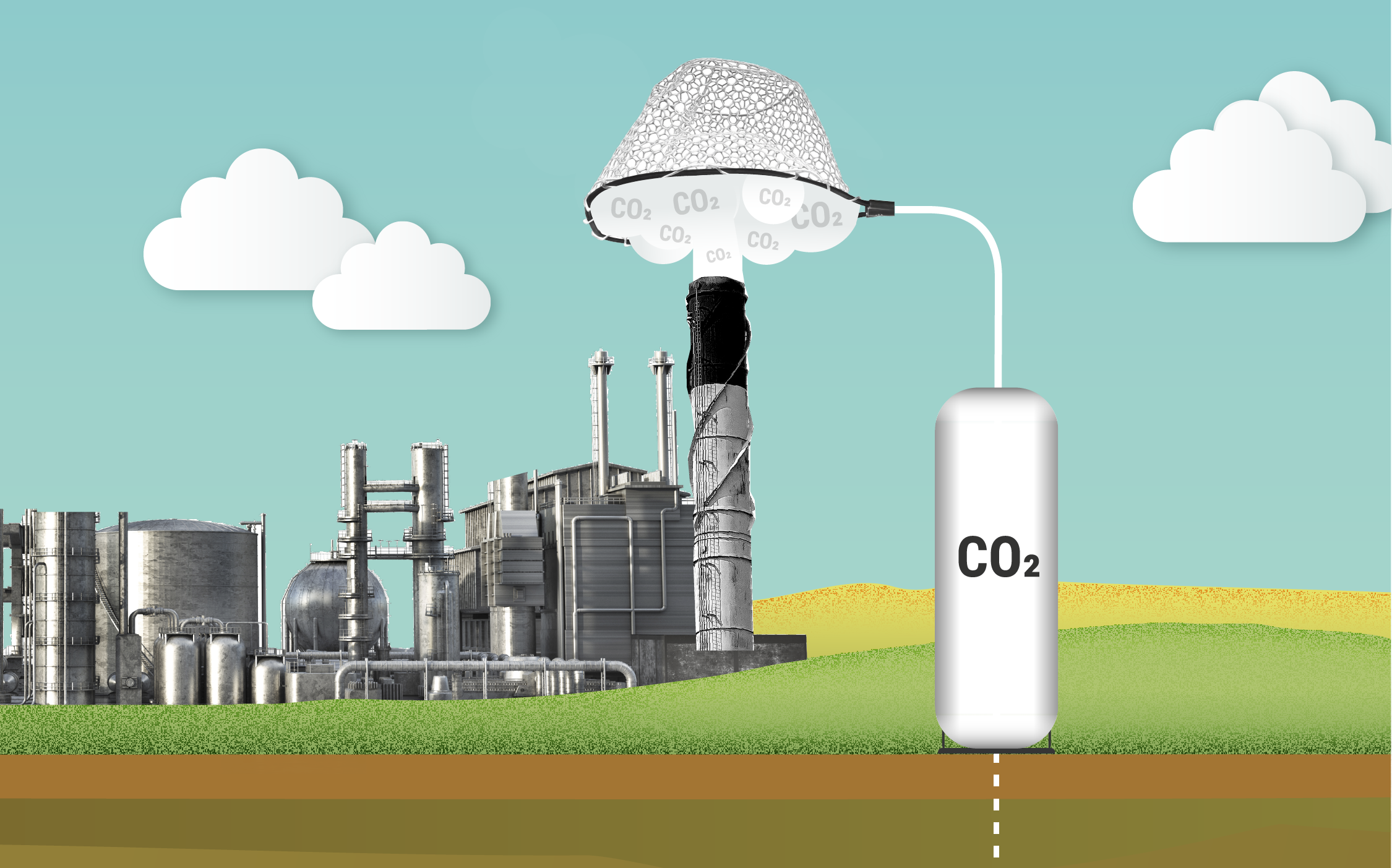The Danish Energy Agency has published public consultation material in connection with the launch of the CCS Fund with a total budget of DKK 28.3 billion (2024 prices). CCS is short for Carbon Capture and Storage. The fund is intended to cover costs for the capture, transport and geological storage of fossil, biogenic, or atmospheric CO2.
DKK 1.770 billion. is allocated annually from 2029 to 2044. The funds are tied to a requirement for the commissioning of capture facilities by December 1st 2029, and a minimum requirement for full capture and storage from 2030. Companies that are able to capture and store CO2 from 2029 can also receive subsidy for doing so. The estimated total climate contribution amounts to a reduction of 2.3 million tonnes of CO2 annually from 2030.
The fund is designed to ensure maximum competition for the subsidy in order to achieve as many CO2 reductions as possible at the lowest possible cost. Subsidy is paid per tonne of CO2 stored. The tender will be conducted as a competitive bidding process with negotiation, where market participants bid with a fixed quantity per year that they will capture and store and a price per tonne of CO2. Multiple bidders can be awarded a contract for subsidy.
The CCS Fund will also help promote the long-term use of CO2 (CCU), as the capture and transport infrastructure is largely the same for CCU. At the same time, the contract offers a certain flexibility to opt out of the contract if, for example, the operator sees a better business opportunity in selling CO2 for utilisation purposes.
Contribution to achieving climate goals
The capture and storage of CO2 underground is considered one of the most important tools for meeting both national and international climate goals. The CCS Fund aims to ensure that Denmark meets its 2030 target of a 70 percent reduction in CO2 emissions compared to 1990 levels. The CCS Fund is estimated to contribute 2.3 million tonnes of CO2e annually from 2030. The Danish Ministry of Climate, Energy and Utilities’ Climate Status and Outlook 2024 (KF24) estimates a reduction gap of approximately 1.5 million tonnes of CO2e.
The European Commission has recommended that to achieve a 90% reduction by 2040, approximately 50 million tonnes of CO₂ should be captured and stored by that year. Similarly, the UN's Intergovernmental Panel on Climate Change (IPCC) estimates that 730 billion tonnes of CO₂ must be stored globally by 2100 to meet the Paris Agreement targets. The CCS fund will contribute to achieving these goals.
Broad political coalition behind the fund
In September 2023, a broad coalition of parties in the Danish parliament adopted an agreement on strengthened framework conditions for CCS, Klimahandling – Vejen til fuld fangst og lagring af CO₂ i 2030. The agreement allocates funds to the new scheme, which consolidates two previously planned support schemes – the CCUS Fund from Klimaaftale for energi og industri mv (2020) and the GSR Fund from Aftale om grøn skattereform for industri mv. (2022).
The new CCS Fund consists of a single competitive bidding process with negotiation, whereas the previous plan was to allocate funds over two competitive bidding processes in June 2024 and June 2025, respectively. These changes are based on new insights from the Danish Energy Agency’s public consultation and experiences from the two previous CCS funds. The most important lesson learned is that the market actors need more time for the commissioning of facilities, the acquisition of storage permits and the establishment of the value chain.
Publication and Schedule
The Danish Energy Agency’s consultation will run until August 20, 2024, giving an opportunity for everyone, including potential bidders, to provide feedback on the CCS Fund. The Danish Energy Agency expects to publish the tender material in October 2024 and award contracts in April 2026 following a prequalification and negotiation round.
See the public consultation material on the Danish Energy Agency’s website.
Additionally, a tender notice will be published on the European Union’s electronic tendering platform, Tender Electronic Daily (TED). The materials will be in English.
Facts:
- The CCS fund is the third fund administered by the Danish Energy Agency providing subsidy for CO₂ capture and storage.
- The first fund, the CCUS Fund, totalling approximately DKK 8 billion, was awarded to Ørsted, which plans to capture and store 430,000 tonnes of CO₂ annually from 2026 and 20 years onwards. Ørsted anticipates capturing and storing the first CO₂ by 2025.
- The NECCS fund was concluded in May 2024, with the Danish Energy Agency contracting three companies to ensure the capture and storage of 160,350 tonnes of biogenic CO₂ annually from 2026 to 2032.
- According to the Danish Energy Agency's latest point source analysis, the full capture potential from all Danish point sources ranges between 6.9-13.7 million tonnes of CO₂ by 2030.
- Denmark has six permits for exploration with the aim of CO₂ storage.
- Denmark has political agreements with several countries for cross-border transport of CO₂ for geological storage beneath the seabed.
- Implementation of the total CCS fund is contingent upon state aid approval from the European Commission.
